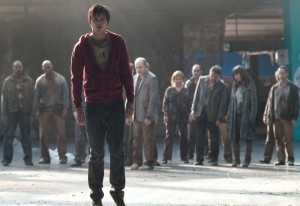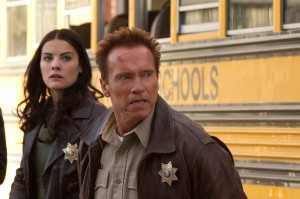The bodies get warmer
 This was pretty delightful. Great soundtrack, too.
This was pretty delightful. Great soundtrack, too.
This winter, two of my students are writing research papers on why zombies are such a popular topic in media culture. And what they’ve taught me is that, while horror trends come and go for all sorts of reasons, zombies stories, with their mindless mobs chasing lone survivors, tend to reference cultural anxieties about pending invasions; for much of second half of the 20th century, it was about the Cold War, and since then it’s been about the fear of some mixture of globalism and out-of-control viruses. Even when the zombie story is very well done – the remake of Dawn of the Dead, or 28 Days Later, or The Walking Dead – dread and hopelessness are so central to that plot that I become unnerved. So badly, in fact, that I walked out of Dawn of the Dead and stopping watch The Walking Dead after the first season. But hope and love are the central themes in the zombie romance Warm Bodies, and that is why I liked it so much. Continue…



